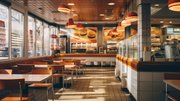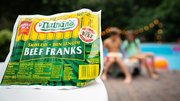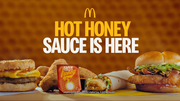Operations
Dunkin' cup change saves 1B foam cups from landfill annually

May 12, 2020
Dunkin' said this week that now all of its restaurants worldwide have transitioned from polystyrene foam cups to paper cups, meeting the timetable established by the brand two years ago, according to a news release. In Dunkin' U.S. restaurants, the foam cups have been replaced by double-walled paper cups.
Dunkin' is also on track to fully transition to new, recyclable hot coffee cup lids in all of its U.S. restaurants by the end of the summer, and is committing to doubling its number of DD Green Achievement restaurants within five years.
The new, double-walled paper cups, made with paperboard certified to the Sustainable Forestry Initiative Standard, are currently used to serve all Dunkin' hot beverages, including coffee, espresso drinks, tea, and hot chocolate in the U.S. To meet guests' expectations and preferences, the cups maintain heat retention properties comparable to the prior foam cups, keeping beverages hot while keeping hands cool, without the need for a sleeve. Dunkin's transition to paper cups will remove approximately one billion foam cups from the waste stream annually.
While a limited number of Dunkin' restaurants may still have foam cups in their inventory, the company's distribution centers are no longer offering foam cups, making only the new, double-walled paper cups available to Dunkin' U.S. franchisees for use in their restaurants.
The company is also on track to be fully transitioned to recyclable hot coffee cup lids in its U.S. restaurants by the end of summer 2020. The new lids are made of #5 polypropylene that can be recycled in cities and towns that offer #5 recycling. This transition, along with the move to the double-walled paper cups, will remove a collective 19 million pounds of polystyrene from the waste stream annually.
By the end of 2020, all Dunkin' Keurig K-Cup pods sold in-store and on shelves at grocery will also be recyclable, in communities where such recycling is available. Made with #5 polypropylene, customers can recycle the K-Cup pods by peeling and disposing of the lid, composting or disposing of the grounds, then recycling the remaining empty cup.
Dunkin' has more than 13,100 restaurants in 41 countries worldwide and is based in Canton, Massachusetts.
 ChatGPT
ChatGPT Grok
Grok Perplexity
Perplexity Claude
Claude








